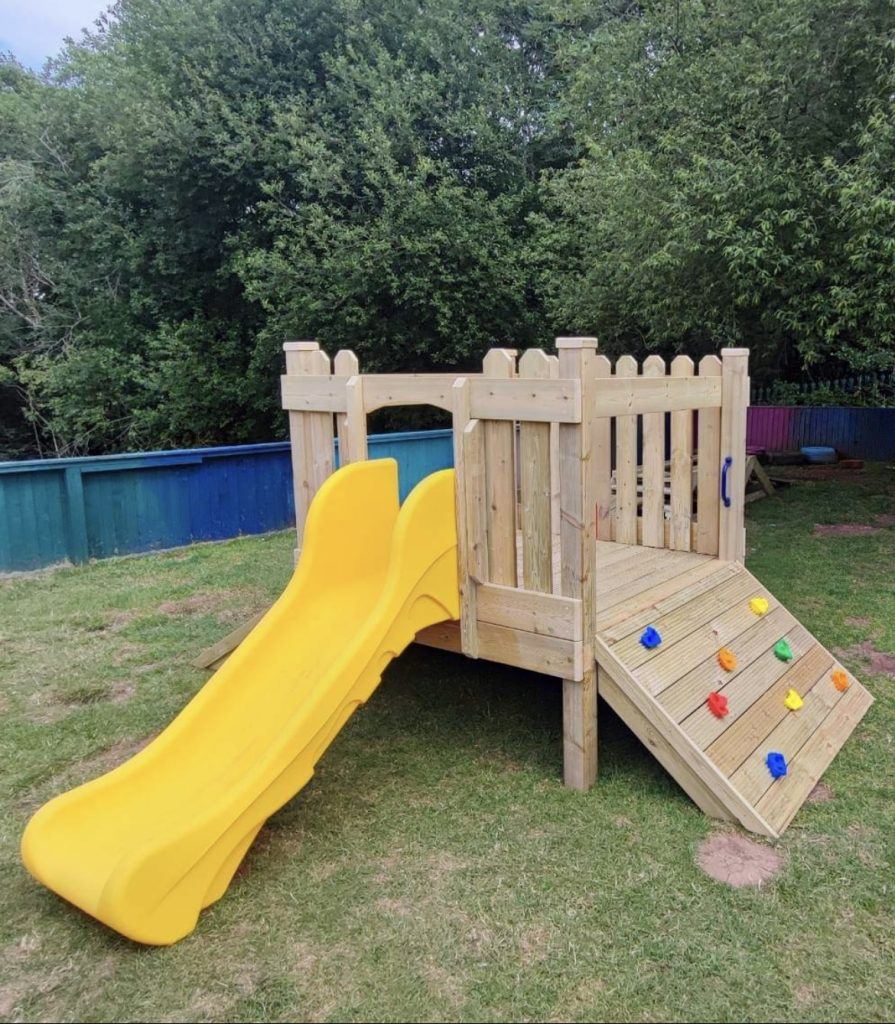The Benefits of Climbing for Children

Climbing is a physically engaging and mentally stimulating activity that offers loads of different benefits for children’s development, as well as benefiting their overall wellbeing. From enhancing physical strength and developing hand eye coordination, to promoting problem solving skills and boosting self esteem, climbing provides a unique learning experience that can contribute massively to a child’s growth. With the UK government recommending an average of 60 minutes of physical exercise for children each day, you can see the importance of finding fun and engaging ways for children to exercise.
At Landscapes 4 Learning we are passionate about making learning engaging and fun for children, both in and out of the classroom, and so we’ve put together this handy guide on some of the key benefits of climbing for children. We will explore some of these multifaceted advantages of climbing, exploring its impact on physical, cognitive, social, and emotional development.
Physical Development
The benefits of climbing are perhaps most obvious in its impact on physical development. Climbing is an excellent way for children to enhance their physical strength, endurance, and coordination in a way that’s so fun they won’t even notice it’s happening! As children navigate various climbing surfaces, they engage multiple different muscle groups, improving their overall body strength. Climbing engages lots of muscles which aren’t commonly exercised day to day, which is a great way of ensuring children develop strength across their whole bodies. This strength development in turn supports their posture, bone health, and overall fitness.
Climbing also requires balance and coordination, which are crucial skills for activities ranging from team sports to cycling and lots of other everyday tasks. As well as this, climbing encourages flexibility as children stretch and manoeuvre their bodies to reach different holds or grips, while also improving the use of this playground equipment improving their agility too. Regular climbing activity can also contribute to cardiovascular health, helping to build endurance, overall fitness, stamina, and a strong and healthy heart.
Cognitive Development
Climbing presents children with a series of cognitive challenges that can help to develop critical thinking and problem solving skills. When scaling a climbing wall, climbing frame or similar structure children have to quickly assess the best route to take, considering factors such as handholds, footholds, and their own capabilities. This process encourages them to use their analytical skills to assess the situation, plan their moves, and adjust their strategy as they progress. In this way, climbing can promote spatial awareness, spatial reasoning, and the ability to think and adapt quickly, which is obviously an essential skill in various life situations as well as in a classroom setting.
Motor Skills
Climbing requires precise control of movements, which contributes to the development of fine and gross motor skills. Fine motor skills involve the manipulation of small objects or precise movements, such as gripping holds and placing feet on footholds accurately. Gross motor skills encompass larger movements and involve the coordination of major muscle groups. Climbing challenges children to refine both fine and gross motor skills at exactly the same time as they have to carefully navigate their way up and over a climbing frame.
Emotional Development
Climbing can develop emotional resilience in children, as well as boosting their conscience and self esteem. As children conquer new challenges and quite literally scale new heights, they experience a sense of accomplishment and satisfaction in a job well done. Overcoming obstacles when climbing can boost a child’s confidence hugely, and can also encourage them to set and achieve goals for themselves.
Climbing also encourages risk taking within a controlled and safe environment. This teaches children to assess risks, make decisions, and manage fear, all of which are of course hugely valuable life skills to learn early in a child’s development.
Social Development
Climbing also has lots of social benefits. Lots of climbing activities involve group interactions and lots of different children working together to achieve a goal. In this way climbing encourages children to learn and develop their teamwork, communication, and cooperation skills.
When climbing, children can offer encouragement to their friends, share strategies, and celebrate each other’s achievements. This collaborative atmosphere nurtures empathy, patience, trust, and the ability to work together towards a common goal. As well as all of that, climbing is a great way of making new connections with other children and forging friendships.
Sensory Stimulation
Climbing engages multiple different sensory systems, which is really important in a child’s development. When climbing, children experience tactile sensations as they touch different textures of holds, auditory sensations as they communicate with others, and visual sensations as they plan their routes and look ahead on their climbing frame. The combination of sensory experiences during climbing enriches children’s sensory processing capabilities, supporting their overall crucial sensory development.
Connection to the outdoors
Climbing most often takes place in outdoor settings, which exposes children to nature and the environment. By installing a climbing frame in your playground you can do so much for so many children. This connection to the outdoors through climbing around on a climbing frame or climbing wall offers a huge variety of benefits, including increased appreciation for nature, exposure to fresh air and sunlight, and helping children to focus when they get back into the classroom after a break.
It’s obvious then that climbing offers a huge array of benefits for children’s physical, cognitive, social, and emotional development, as well as nurturing a love of the great outdoors and burning off a bit of excess energy!
As children climb, they can enhance their physical strength, coordination, problem solving skills, self confidence, and social skills. The cognitive challenges of climbing stimulate critical thinking, while the sensory experiences contribute to healthy sensory development. Encouraging children to explore the world of climbing can empower them with skills and experiences that last a lifetime.
If you would like to add a climbing frame to your playground, we have a huge range of school climbing frame options available at Landscapes 4 Learning. If you’d like any more information or advice, feel free to get in touch with us. We’ll be more than happy to help.
